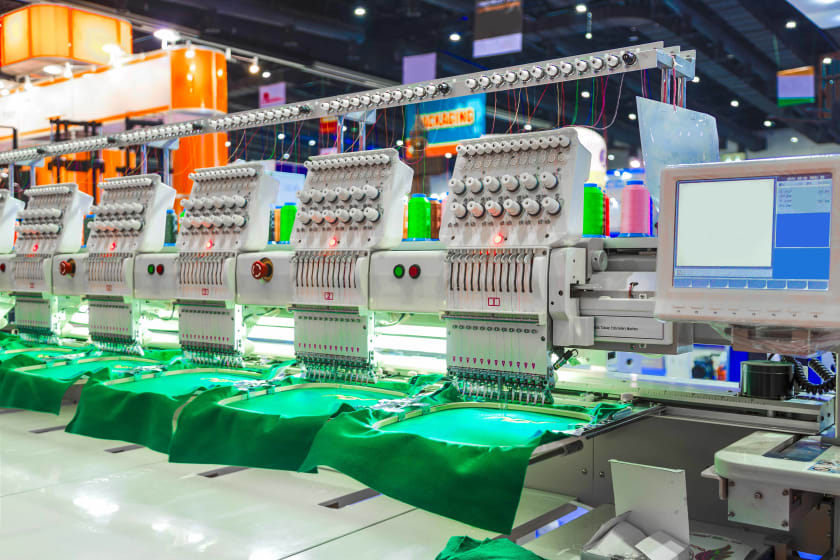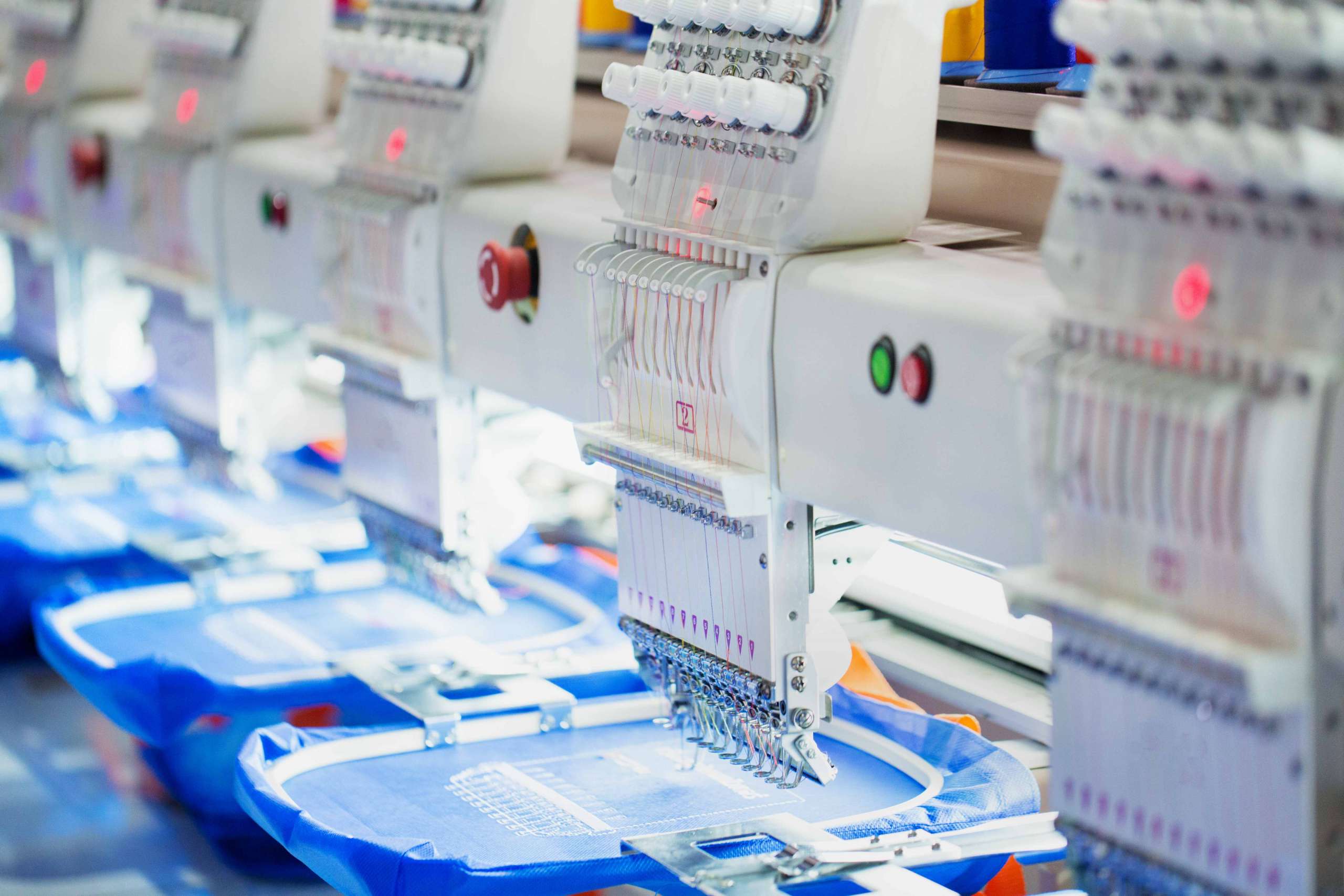10 Modern Advance Technologies Impacting Manufacturers



Summary: The fashion industry is witnessing a spike in new technological developments to make business dealings a whole lot smoother. Here are some of the major modern advanced technologies that are impacting the manufacturing industry.
The fashion industry is ever evolving considering the number of trends that go in and out of vogue each season. But fashion trends aren’t the only thing that makes this industry so evolutionary. The biggest manufacturing trends dominating supply chains are advancements in technology that are changing the way fashion brands produce their collections.
Modern technologies are catapulting companies to new heights by revolutionizing the entire manufacturing process and making business boom for those who are getting with the times.
Here are 10 major modern advanced technology trends that are impacting the manufacturing industry that you need to know of.
1. Robotics
Robots can and are being used in various manufacturing roles within small to medium-sized organizations. And with advancements in robotics, robots used in manufacturing are soon going to become even more smarter and efficient and with fairly reasonable accessibility in terms of price points.
Currently, robots can take over manufacturing tasks such as sealing and inspection of goods and higher-skill tasks like welding and drilling. Robots help manufacturers automate tasks and increase efficiency and accuracy in production. Today, robots are popularly used in fashion manufacturing companies amongst other industrial factories as well. Robots can take over tasks such as sewing, knitting, cutting fabric, printing designs on fabrics, packaging, handling complex industrial equipment, and more.
2. Nanotechnology

Nanotechnology is rapidly advancing and it is set to blow up in the manufacturing industry very soon. Nanotechnology can be applied in car manufacturing and even tire manufacturing to increase the longevity of new-age durable tires. Nanomachines are also in the pipeline; they haven’t been introduced in the market yet but the development of the same is being looked into.
Nanotechnology can be applied by brands and manufacturers to construct clothing with nanoparticles to improve garment quality. These nanoparticles are often used to make self-cleaning fabrics, water-resistant clothing, dirt and soil-repellant items, and more.
3. 3D Printing
3D printers are already huge. They are one of the biggest trends in manufacturing that caught on like wildfire. 3D printing first gained popularity in the design industry and it was soon recognized and is being adopted by many manufacturing companies as well. This production technology is fast-tracking businesses and is making supply chains more competitive.
3D printing can help fashion brands create one-of-a-kind garments with the help of 3D modeling and can also produce a vast sum of them in a shorter time frame once the design model is approved and saved. Many designers have presented collections that are entirely 3D printed on runways.
4. Internet of Things (IoT)

By delivering real-time data, the internet of things, also known as IoT, provides companies with insights into the entire production process so that necessary customizations can be made and more. IoT uses a network of sensors to collect essential production data on various levels within the manufacturing plant through cloud software. Incorporating IoT into your manufacturing model will in turn help identify issues earlier on, reduce costs, prevent product defects, accelerate order turnover time and more.
5. Cloud Computing
While the internet of things has its application within a single factory, cloud computing applies to various factories in your supply chain. Just like IoT, it collects and communicates data on production processes but it takes it a step further by communicating this data to various other stakeholders within your supply chain as well. This feature allows fashion companies to have oversight of everything going on in the product life cycle, right from sourcing and production to delivery. It enables quick responses between stakeholders so that the order process is streamlined and more agile.
6. 5G
5G technology will make a world of a difference in companies that have devices that run automated processes. The connectivity and low lag time that 5G offers will help generate lots more data at a faster rate with fewer to no inefficiencies. Countries like China and South Korea are already making the most of 5G tech and soon even the US and UK manufacturing industries will take full advantage of this resource.

7. Augmented Reality (AR)
AR is used to test out a production module to identify any threats, unsafe working conditions, and the entire finished product. AR can help train employees and help them with essential information when it comes to handling equipment. This tech can provide virtual tailoring tryouts that help employees and fashion brands understand how a piece of garment will be made before implicating the production module in real time.
AR provides remote support and control to brand owners, manufacturers, and designers. It is also gaining the vote of customers as they grow more comfortable with allowing companies to use AR to provide good business solutions that last long-term.
8. AI Technology
Artificial Intelligence is here to stay in the manufacturing industry. The industry will witness more advancements in the AI space as the AI-powered data and solutions provided by this technology are of great value and cannot be substituted by any other technological features at present.

AI can be used to create new fabric blends and garments. AI tech is also used to predict trends in the fashion world so that brands and manufacturers can get on with production based on these insights.
9. Big Data
Making use of Big Data through advanced software is another technological advancement to watch out for. Big data comes to the rescue when you wish to move production to another location or open new factories.
10. Cybersecurity
Since supply chains are being digitized and nearly all businesses are shifting to digital communications, ensuring a safe digital network that is protected from cyber threats is of utmost importance. That’s where Cybersecurity comes in. Cybersecurity technologies are helping companies dive into digitization by providing safe networks through cloud-based ERPs like SAP.
These are the ten modern advanced technologies that are impacting manufacturers and urging them to step up their game. Adopting these technologies can only make businesses run smoother and lend them a more competitive edge in this fast-paced industry.

Key Takeaways
- The biggest manufacturing trends for the upcoming year are technological advancements.
- Advanced tech trends are transforming the way fashion companies do business within their supply chain.
- New tech developments are changing the way products are developed.
Fashniza is a fashion technology company that provides advance technological solutions to fashion companies. Head to Fashinza.com to arm your business with the latest tech developments now.



















